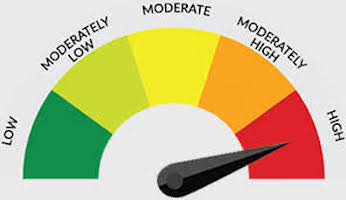Successful investors master the art of predicting and managing risk and return on investment. Those who seek to invest in foreign countries often weigh the costs of the unknown against the potential returns available to their stockholders. The risk-return tradeoff states that the potential return rises with an increase in risk. Using this principle, individuals associate low levels of uncertainty with low potential returns, and high levels of uncertainty or risk with high potential returns.
In the era of instantaneous communication via social media, the COVID-19 pandemic and global unrest, investors around the world are being generally cautious. In Guyana, uncertainty is high. Where Guyana once presented as an attractive destination for investors with its English speaking population, its commitment to a predictable and non-discriminatory regulatory environment and an absence of undue administrative impediments to business, its massive oil find and its close proximity to the US; a now predictable environment of political conflict, a growing chasm between the major ethnic groups, public threats by government officials about reneging on contracts, political unrest, claims of racial targeting and the likelihood of protracted civil unrest and even violence makes Guyana a decidedly unattractive destination for foreign investment right now.
Government leaders must recalibrate and decide whether the real financial cost of the conflicts caused by the alleged targeting of political enemies is worth the trade-off of loss of FDI and delayed economic development. African Guyanese, who make up more than 30% of the nation’s population, claim the judicial system is biased and there is a risk that these once highly regarded institutions are becoming politically tainted. When citizens can no longer believe in the justice system, they rebel. Rebellion affects everyone.
Guyana’s national infrastructure badly needs the investment planned from the future cash flows expected from increased foreign direct and local investment. Promises of improved road networks, education, water, electricity, healthcare, increase in jobs and an expected decrease in crime, will stall if the projected investments do not materialise.
Guyana is at the crossroads and a prudent government will have to decide whether it makes sense to risk the investments desperately needed to develop Guyana by engaging in unforced political errors.
Citizens of Guyana want investment and development but equal access to opportunity, equal protection under the law and equal rights and justice must accompany development goals.
Essentially, a large and vocal segment of the Guyanese population is screaming, “no justice, no peace” and that is definitely not what foreign investors wish to hear right now.
